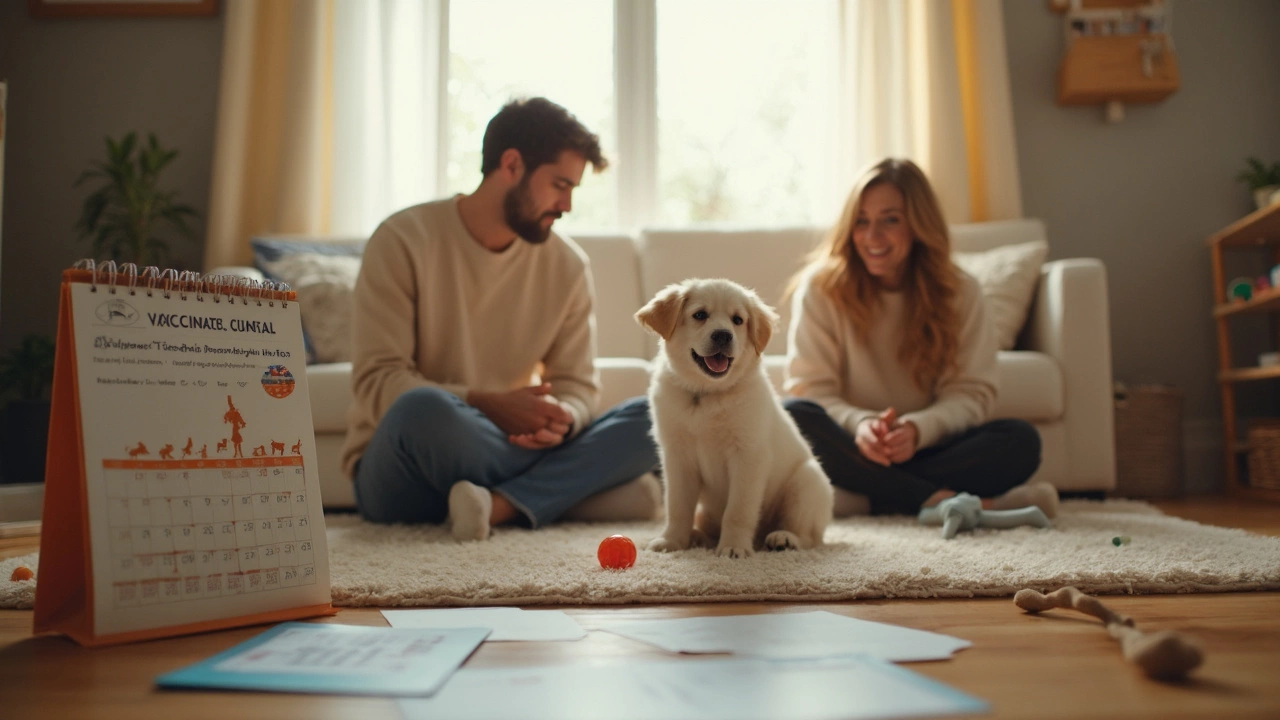Dog Vaccines: Essential Guide for Keeping Your Pup Healthy
If you’ve just added a furry friend to your family, the first thing on many vets' checklists is vaccinations. They sound scary, but they’re simply a way to teach your dog’s immune system to fight off nasty diseases. Below you’ll find the basics—what shots are needed, when to give them, and what to watch for after the jab.
Why Vaccines Matter for Dogs
Vaccines work by exposing a tiny, harmless piece of a disease to your dog’s body. That tiny piece trains the immune system to recognize the real thing later on. Without that training, a simple exposure could turn into a serious illness, an expensive vet bill, or even a life‑threatening situation. Think of vaccines as insurance: you pay a little now to avoid a big problem later.
Core vs. Non‑Core Shots: What’s the Difference?
Veterinarians split dog vaccines into two groups. Core vaccines are recommended for every dog, no matter where you live. These include:
- DA2PP (Distemper, Adenovirus, Parvovirus, Parainfluenza)
- Rabies (required by law in most UK regions)
Non‑core vaccines target diseases that are common only in certain areas or lifestyles. Examples are:
- Leptospirosis – useful if your dog loves lakes or walks near farms
- Bordetella (kennel cough) – a must if you frequent doggy day‑care or boarding
- Canine influenza – recommended for dogs that interact with many other dogs
Ask your vet which non‑core shots fit your dog’s routine. The answer usually depends on where you live, whether your dog competes in events, and if they share space with other dogs.
When to Start: Puppies get their first round of core shots at about 6‑8 weeks old. Then they get boosters every 3‑4 weeks until they’re 16 weeks. After the puppy series, a single booster is given at one year, followed by a repeat every three years (or as your vet recommends).
What to Expect After a Shot: Most dogs bounce back quickly. You might see a sore spot, a little tiredness, or a low‑grade fever for a day. If your pup looks overly lethargic, has vomiting, or swelling that gets bigger, give your vet a call.
Cost and Convenience: Many UK vets charge a package price for the puppy series, which can be cheaper than paying per shot. Some pet stores also offer vaccination clinics at lower rates, but always verify the vet overseeing the clinic is qualified.
Keeping a record of your dog’s vaccinations is crucial. Most owners store the paperwork in a folder, but you can also use a digital app or ask the clinic to email you a PDF. Having this on hand matters if you need boarding, travel, or proof for pet insurance.
In short, vaccines are a simple step that protects your dog from serious illness and keeps you from unexpected vet visits. Schedule the first appointment early, stick to the booster plan, and you’ll give your pup a strong start in life.
Puppy Vaccination Guide: Essential Shots Every Puppy Needs
Learn which shots puppies really need, see a simple vaccine schedule, and get practical tips to keep your new furry friend safe and healthy.
Understanding the 7 in 1 Vaccine for Dogs
The 7 in 1 vaccine for dogs is a crucial element in preventing various serious canine diseases. It protects against seven common infections, ensuring your furry friend stays healthy and safe. This vaccine covers diseases like distemper, hepatitis, and parvovirus, and more, which can be life-threatening if left untreated. Understanding how this vaccine works and when to administer it can make a big difference in your dog's well-being. Learn about the benefits and crucial insights surrounding this essential vaccination.

